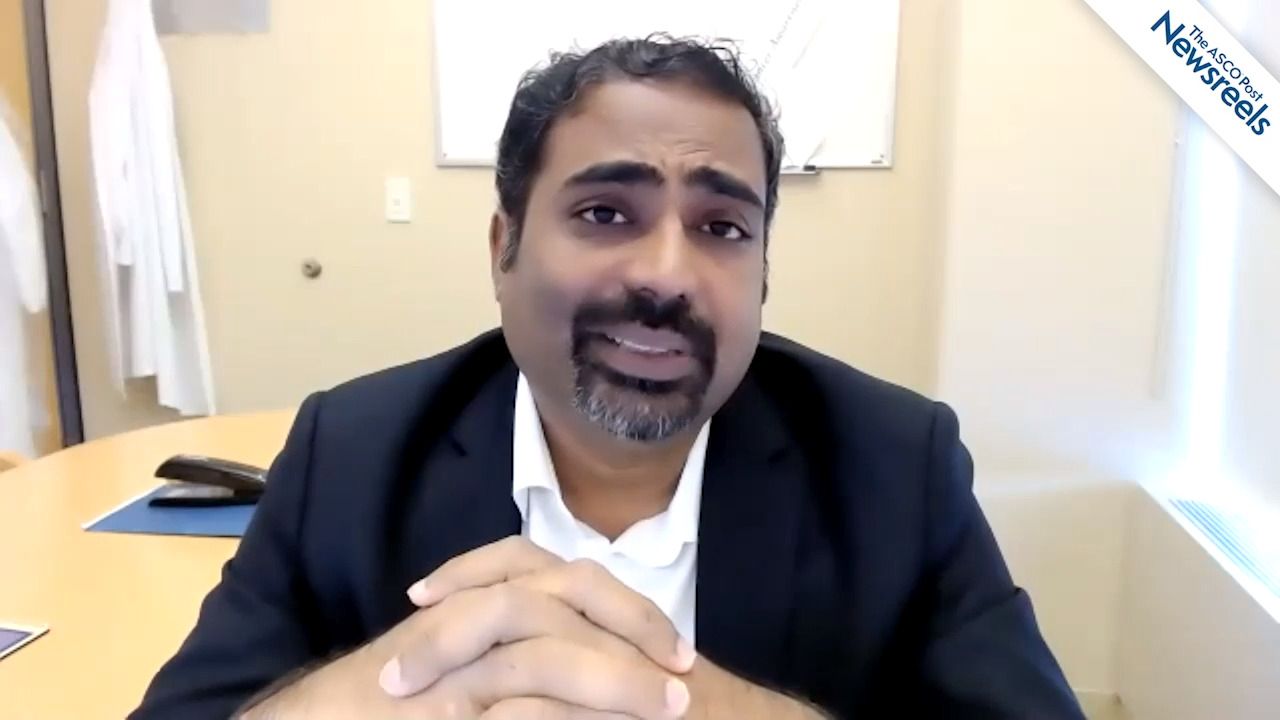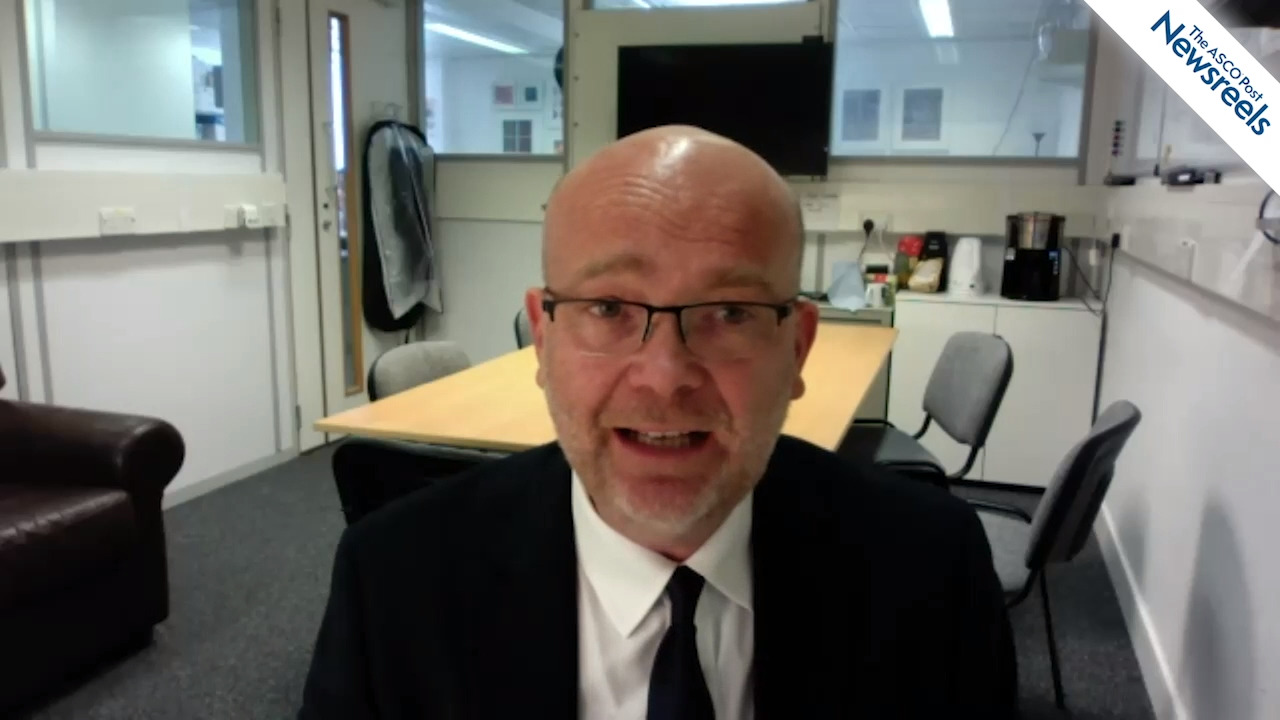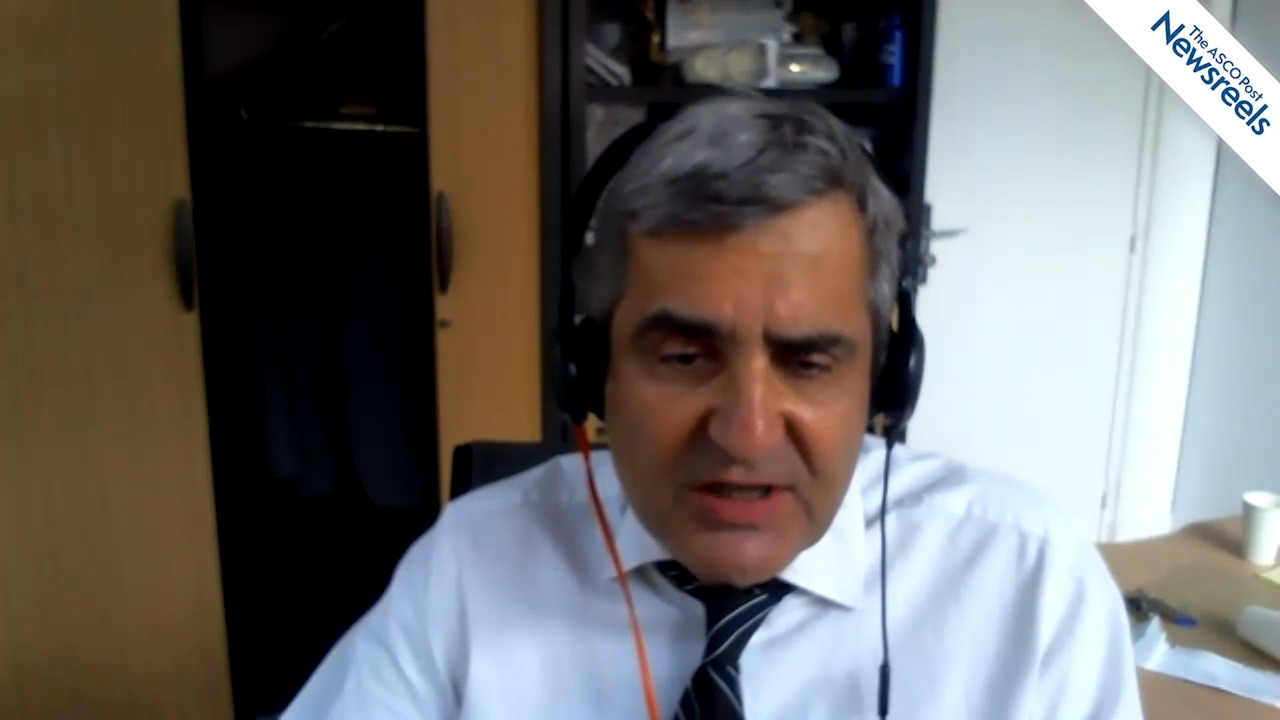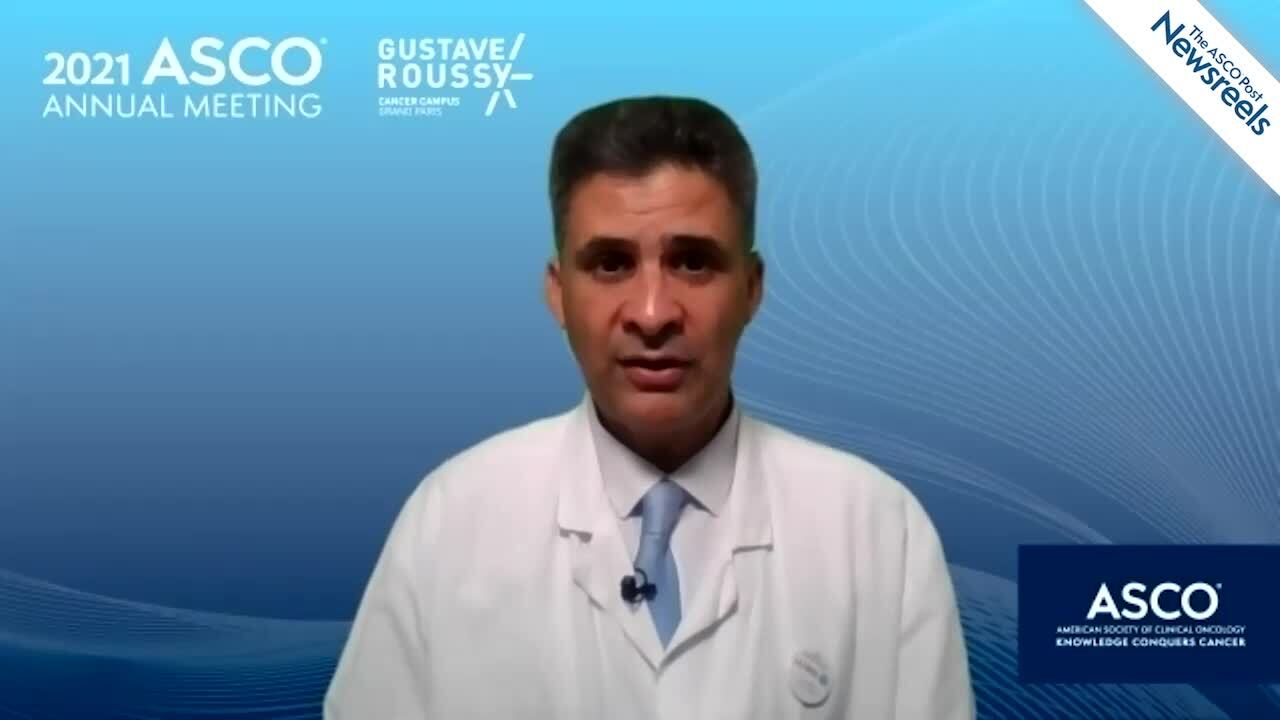Taiga Nishihori, MD, on Multiple Myeloma: Maintenance Ixazomib After Transplant
2021 ASCO Annual Meeting
Taiga Nishihori, MD, of the H. Lee Moffitt Cancer Center and Research Institute, discusses the outcome of a trial that explored maintenance therapy with ixazomib after allogeneic hematopoietic cell transplantation in patients with high-risk multiple myeloma. Toxicities unrelated to the maintenance treatment forced the trial to close prematurely (Abstract 7003).
The ASCO Post Staff
Vamsidhar Velcheti, MD, of New York University, discusses overall survival and exploratory subgroup analyses from the phase II CodeBreaK 100 trial, which evaluated the use of sotorasib in pretreated KRAS G12C–mutant non–small cell lung cancer (Abstract 9003).
The ASCO Post Staff
Jingxuan Zhao, MPH, of the American Cancer Society, discusses study findings that showed worse long-term survival among low-income patients with cancer who live in states that have not expanded Medicaid eligibility (Abstract 6512).
The ASCO Post Staff
Andrew Tutt, PhD, MBChB, of the Institute of Cancer Research, London, discusses findings from the phase III OlympiA trial, which showed that adjuvant olaparib, a PARP inhibitor, following adjuvant or neoadjuvant chemotherapy, may improve invasive disease–free survival in patients with germline BRCA-mutated and high-risk HER2-negative early breast cancer, which might lead to a new indication in this setting (Abstract LBA1).
The ASCO Post Staff
Thierry André, MD, of Hôpital Saint-Antoine, discusses final overall survival data for the phase III KEYNOTE-177 study, which confirmed pembrolizumab as a new standard of care for first-line treatment of patients with microsatellite instability–high/mismatch repair–deficient metastatic colorectal cancer (Abstract 3500).
The ASCO Post Staff
Karim Fizazi, MD, PhD, of Institut Gustave Roussy, discusses first results from the phase III PEACE1 trial, which showed that abiraterone plus androgen-deprivation therapy and docetaxel improves radiographic progression-free survival in men with de novo metastatic prostate cancer (Abstract 5000).





